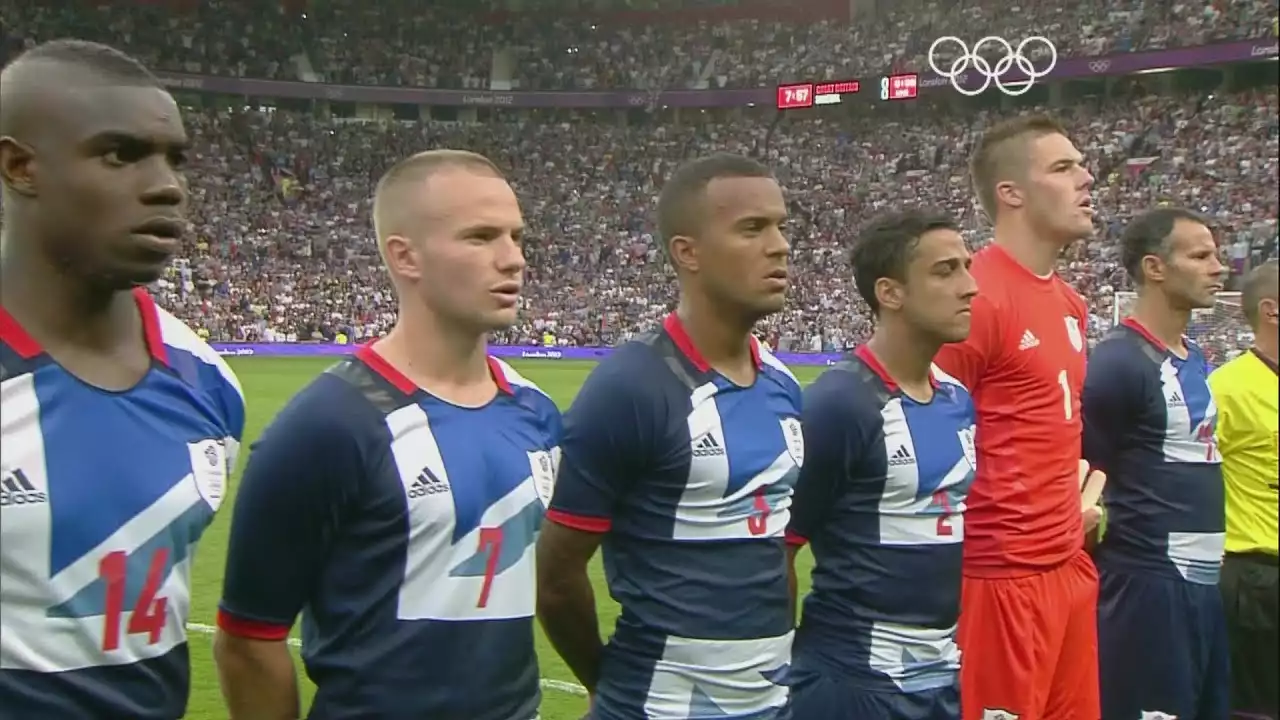The history of FIFA's involvement in Olympic football
FIFA's involvement in Olympic football dates back to the very first modern Olympic Games in 1896. Initially, FIFA did not have direct control over the tournament, but as the popularity of football grew, so did its influence. FIFA became the governing body of international football in 1904, and from then on, it played a crucial role in shaping the destiny of Olympic football. Over the years, FIFA has been instrumental in establishing rules, implementing regulations, and ensuring fair competition in the Olympic football tournament. Its involvement has evolved and expanded, reflecting the changing dynamics of the global sports landscape.
FIFA's role in the Olympic football tournament
FIFA's role in the Olympic football tournament is multifaceted. It is responsible for overseeing the organization and administration of the competition, ensuring that it meets FIFA's standards and regulations. FIFA sets the guidelines for team selection, player eligibility, and the overall management of the tournament. It also appoints referees and officials to maintain fair play and sportsmanship. While the International Olympic Committee (IOC) has ultimate authority over the Olympics, FIFA's influence cannot be underestimated, as it holds significant power to shape the outcome of the football tournament.
Controversies surrounding FIFA's influence in Olympic football
FIFA's influence in Olympic football has not been without controversy. Over the years, there have been numerous instances where FIFA's decisions and actions have sparked outrage and debate. One notable controversy was the selection of players for the Olympic football tournament, with FIFA imposing age restrictions that limited the participation of established professional footballers. This led to debates about fairness and the integrity of the competition. Additionally, FIFA's role in mediating disputes between teams and addressing allegations of corruption and match-fixing has also faced scrutiny. These controversies highlight the delicate balance FIFA must strike between upholding its authority and ensuring the integrity of the Olympic football tournament.
The impact of FIFA's influence on Olympic football players and teams
FIFA's influence extends beyond the organization and administration of the Olympic football tournament. It has a significant impact on players and teams participating in the competition. FIFA's regulations on player eligibility, for instance, often result in conflicts between clubs and national teams. The decision of whether to release players for the tournament or retain them for club commitments can have far-reaching consequences for both the players and the teams involved. Additionally, FIFA's influence on the rules and regulations of the game, such as the use of Video Assistant Referees (VAR) and the implementation of new technologies, can affect the way players and teams approach the tournament. Ultimately, FIFA's influence shapes the experience of Olympic football for both players and teams.
The relationship between FIFA and the International Olympic Committee (IOC)
The relationship between FIFA and the International Olympic Committee (IOC) is a complex one. While FIFA is the governing body of international football, the IOC has ultimate authority over the Olympic Games. This has led to a delicate balance of power between the two organizations. FIFA's influence in Olympic football is derived from its ability to leverage its global reach and established infrastructure, while the IOC holds the power to make final decisions regarding the inclusion of football in the Olympics and the overall management of the Games. The relationship between FIFA and the IOC is characterized by negotiations, compromises, and occasional conflicts, as both organizations seek to protect their respective interests and maintain the integrity of the Olympic football tournament.
FIFA's influence on the rules and regulations of Olympic football
FIFA's influence on the rules and regulations of Olympic football is significant. FIFA has the authority to implement changes to the game, such as the introduction of new rules or the adoption of innovative technologies. For instance, FIFA's decision to allow the use of VAR in the Olympic football tournament has had a profound impact on the way the game is officiated and perceived. Additionally, FIFA's regulations on player eligibility, such as age restrictions, have shaped the composition of teams and influenced the style of play in the tournament. FIFA's influence on the rules and regulations of Olympic football reflects its commitment to ensuring fair play and maintaining the integrity of the competition.
FIFA's financial contributions to Olympic football
FIFA's financial contributions to Olympic football have played a crucial role in the development and sustainability of the tournament. FIFA provides financial support to national football associations, helping them prepare and participate in the Olympic football tournament. This financial assistance covers various aspects, including travel expenses, training facilities, and equipment. FIFA's contributions have allowed countries with limited resources to compete at the highest level and have contributed to the overall growth and popularity of Olympic football. However, FIFA's financial influence has also faced criticism, with concerns raised about transparency and the potential for undue influence over the tournament's direction.
Criticisms and debates surrounding FIFA's influence in Olympic football
FIFA's influence in Olympic football has not been without its fair share of criticisms and debates. Some argue that FIFA's involvement in the tournament dilutes the spirit of the Olympics, as football already has its own dedicated World Cup and other international competitions. There are concerns that FIFA's dominance in the sport may overshadow other Olympic events and diminish their significance. Additionally, FIFA's decision-making processes and alleged corruption scandals have fueled debates about the organization's integrity and its suitability as a governing body for Olympic football. These criticisms and debates underscore the need for transparency, accountability, and open dialogue when it comes to FIFA's influence in Olympic football.
The future of FIFA's involvement in Olympic football
The future of FIFA's involvement in Olympic football remains uncertain. As the global sports landscape continues to evolve, FIFA faces new challenges and opportunities. The organization must adapt to changing trends, technologies, and player demands while maintaining the integrity of the Olympic football tournament. The ongoing debates and controversies surrounding FIFA's influence in Olympic football serve as a reminder that the organization must continuously strive for transparency, fairness, and accountability. The future of FIFA's involvement in Olympic football rests on its ability to navigate these challenges, engage in meaningful dialogue with stakeholders, and uphold the values that make the sport so beloved worldwide.
FIFA's influence in Olympic football is far-reaching and often underestimated. From its historical involvement to its role in shaping the rules, regulations, and player eligibility, FIFA's invisible hand guides the fate of nations on the pitch. The controversies, debates, and financial contributions surrounding FIFA's influence add layers of complexity to the Olympic football tournament. As the relationship between FIFA and the IOC continues to evolve, it is crucial to foster open dialogue and ensure transparency in FIFA's decision-making processes. The future of FIFA's involvement in Olympic football rests on its ability to adapt to changing dynamics, engage with stakeholders, and uphold the integrity of the sport. So, step into the world of Olympic football and unravel the layers of FIFA's influence - a behind-the-scenes look that brings new understanding to the beautiful game.










